In the face of climate change and an increasing awareness of our environmental impact, more homeowners in the UK are looking for ways to make their homes more eco-friendly. While it might seem like a daunting task, small changes can make a big difference. Here are 37 practical steps you can take to reduce your carbon footprint and create a more sustainable home in 2025.
Energy Efficiency
- Install Solar Panels: Significantly improve your long term energy usage by fitting solar panels on your roof to generate electricity.
- Switch to LED Lighting: LED bulbs use significantly less energy than traditional incandescent bulbs.
- Use Smart Thermostats: Regulate your heating and cooling systems with smart thermostats to save energy.
- Install a Heat Pump: Heat pumps are 4 times more efficient than traditional boilers.
- Insulate Your Home: Ensure your home is well insulated to reduce heat loss and save on energy bills.
- Utilise Energy-Saving Plugs: Invest in energy-saving plugs to cut down on standby power usage.
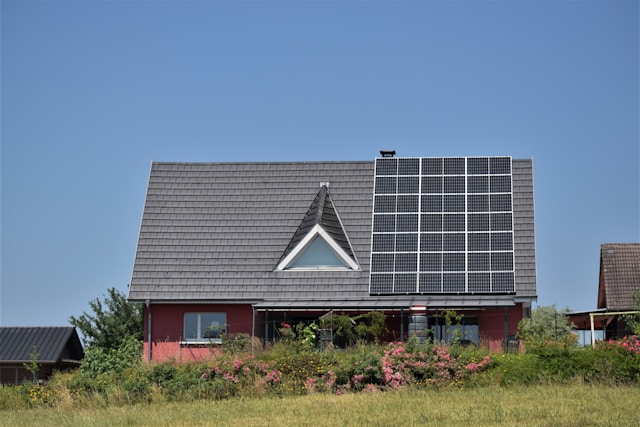
Significantly improve your long term energy usage by fitting solar panels on your roof to generate electricity.
Water Conservation
- Install Low-Flow Showerheads: Reduce water usage with low-flow showerheads without sacrificing water pressure.
- Fix Leaky Taps: A dripping tap can waste a significant amount of water over time.
- Use a Water Butt: Collect rainwater to water your garden and reduce your water consumption.
- Opt for Dual-Flush Toilets: Use dual-flush toilets to conserve water with every flush.
- Install Tap Aerators: Tap aerators mix air with the water flow, reducing water use.
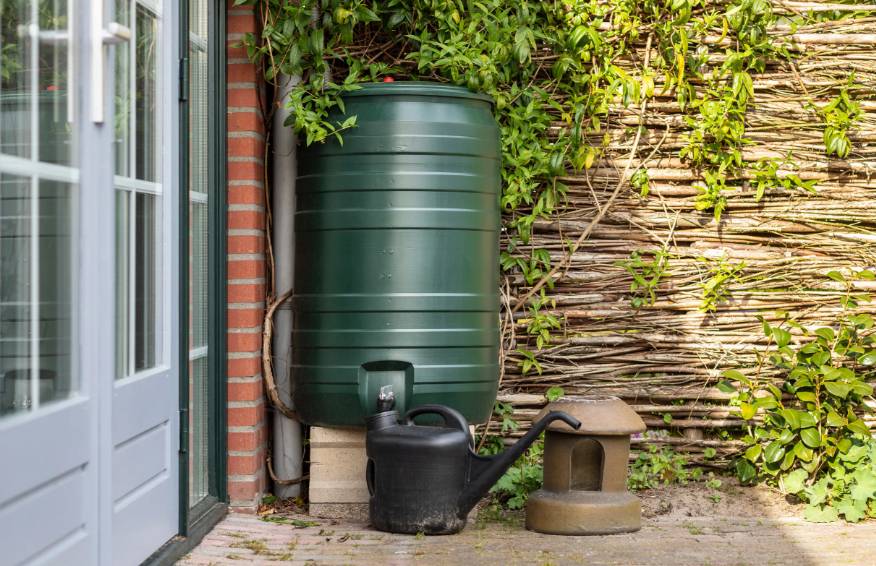
Collect rainwater to water your garden and reduce your water consumption.
Waste Reduction
- Compost Food Waste: Composting kitchen scraps reduces landfill waste and enriches your garden soil.
- Eliminate Single-Use Plastics: Opt for reusable containers and bags to cut down on plastic waste.
- Recycle More: Stay informed about local recycling programmes, know where your local recycling centre is and use local social media platforms to upcycle.
- Buy in Bulk: Purchasing in bulk reduces packaging waste.
- Repair, Don’t Replace: Fix broken items instead of throwing them away.
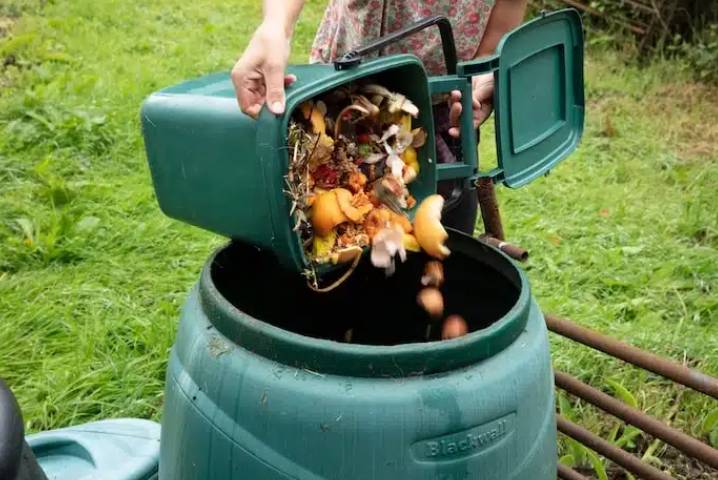
Composting kitchen scraps reduces landfill waste and enriches your garden soil.
Sustainable Materials
- Use Eco-Friendly Paint: Choose non-toxic, low-VOC paints for a healthier home and environment.
- Opt for Bamboo Flooring: Bamboo is a sustainable alternative to hardwood flooring.
- Choose Recycled Materials: Incorporate recycled materials into your home renovations.
- Install Cork Flooring: Cork is a renewable material that’s perfect for flooring.
- Purchase Second-Hand Furniture: Buying second-hand reduces demand for new resources.
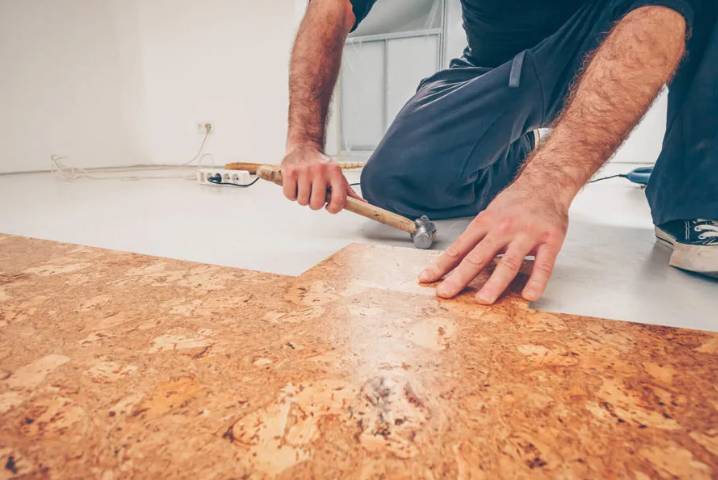
Cork is a renewable material that’s perfect for flooring.
Green Living
- Plant a New Garden: Grow your own fruits and vegetables to reduce your carbon footprint.
- Create a Green Roof: Transform flat roofs into a living garden, providing insulation and habitat for wildlife.
- Choose Native Plants: Native plants require less water and maintenance.
- Install a Living Wall: Living walls improve air quality and provide insulation.
- Create a Pollinator Garden: Support local biodiversity by planting flowers that attract bees and butterflies.
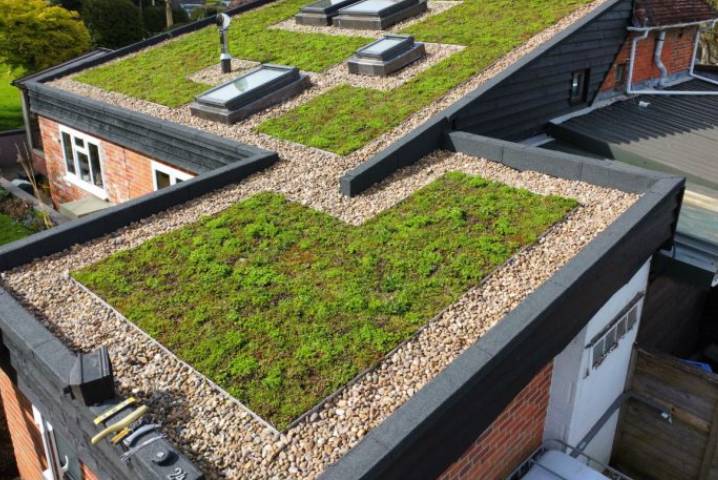
Transform flat roofs into a living garden, providing insulation and habitat for wildlife.
Innovative Technology
- Use a Greywater System: Reuse water from sinks and showers for irrigation.
- Install a Heat Recovery Ventilation (HRV) System: HRV systems improve indoor air quality while conserving energy.
- Invest in Motion Sensors: Less wasted energy with lights that only turn on when needed.
- Adopt Smart Home Technology: Automate your home to maximise energy efficiency.
- Install Electric Vehicle (EV) Charging Points: Prepare for electric vehicle adoption with home charging stations.
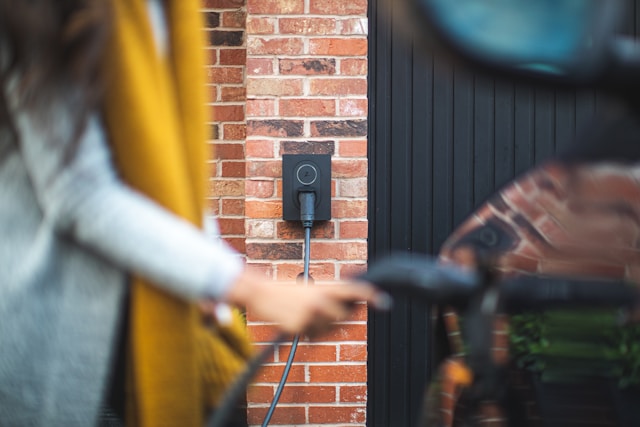
Prepare for electric vehicle adoption with home charging stations.
Mindful Consumption
- Support Local Producers: Reduce transportation emissions by purchasing local produce.
- Choose Ethical Brands: Support brands that prioritise sustainability and fair practices.
- Reduce Meat Consumption: Opt for plant-based meals to lessen your environmental impact.
- Buy Organic: Organic products are often more sustainable and better for the environment.
- Use Natural Cleaning Products: Protect waterways by choosing non-toxic cleaning solutions.
- Encourage Others: Share your eco-friendly practices with friends and family to inspire change.

Reduce transportation emissions by purchasing local produce.
